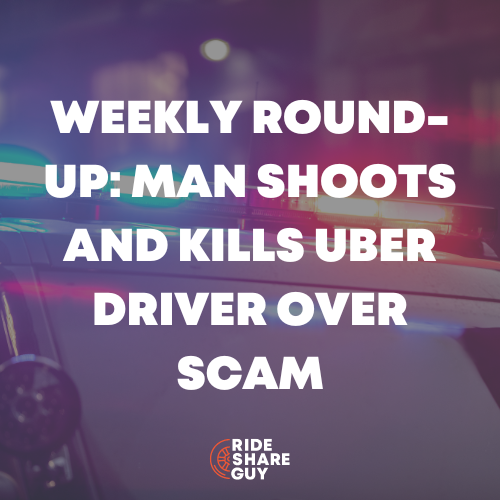In this week’s weekly roundup, senior RSG contributor John Ince covers the latest in grocery and delivery news – particularly the sustainability of these industries after the pandemic subsides. Also, Wayne’s World is back!
DoorDash Leads US Convenience Store Deliveries As Sector Soars 346 Pct (Pymnts)
Sum and Substance: DoorDash is the dominant player in convenience store deliveries as the pandemic continues to keep people home and out of physical retailers and restaurants, according to a research report released Thursday (Jan. 28) by Edison Trends.
Convenience stores like 7-Eleven and CVS saw third-party delivery app sales escalate 346 percent in 2020. January transactions show DoorDash had 60 percent of the market share for convenience store deliveries, ahead of Philadelphia’s goPuff with 23 percent, San Francisco’s Uber Eats with 9 percent and San Francisco’s Instacart at 4 percent.
My Take: DoorDash continues to capitalize on the pandemic, and the changes in living habits it has brought. But this market is actually quite small. It only accounts for 1% of the total delivery marketplace. Still, it’s a nice boost.
‘WAYNE’S WORLD’ REBOOTED FOR UBER EATS SUPER BOWL AD TEASE (UltimateClassicRock)
Sum and Substance: Mike Myers and Dana Carvey have rebooted their Wayne’s World characters of Wayne Campbell and Garth Algar to promote Uber Eats for the upcoming Super Bowl.
Sitting in the basement set made famous on Saturday Night Live, Myers’ Wayne begins, “2020, man, that was a great year.” Then he and Carvey, who’s wearing an old-school Alice Cooper T-shirt, add in unison, “Not!”
My Take: Well, it’s that time of year again. Super Bowl ads will be shown and re-shown. What will the ad be? Tomorrow we’ll all find out.
Uber To Acquire Drizly In $1.1 Billion Deal (Forbes)
Sum and Substance: The San Francisco-based tech giant — best known for its ride-hailing and food delivery services — announced Tuesday plans to acquire Boston-based alcohol e-commerce marketplace Drizly in a cash-and-stock deal valued at $1.1 billion.
My Take: Apparently Drizly is profitable, though we don’t know how profitable. 90% of the deal is in Uber stock and 10% in cash. Now that Uber is public, its stock is essentially a currency so a deal like this only costs the dilution it creates. All in all it looks like a good deal for both parties – which was reflected in the bump in Uber’s stock price.
Read more about our analysis of Uber Eats acquiring Drizly here.
Uber for Everything (NYTimes)
Sum and Substance: Delivery apps like Uber and Instacart are branching out. How this shakes out will affect all of us. One of the technology industry’s big bets is that once a company is good at transporting one thing, it should be able to do the same for anything.
Companies including Uber and Instacart are starting to branch out from one area — getting people or groceries to their destination — into delivering restaurant food, prescription drugs, home goods, pet food and convenience store items. In that vein, Uber this week bought Drizly, which delivers from liquor stores.
You can imagine the potential if courier services delivered almost anything under the sun. But will it work, and is it a good thing? It’s impossible to predict whether one-stop delivery behemoths will pan out or what the ripple effects might be — both helpful and harmful. But we should pay attention to these companies’ moves and think critically about the stakes for small businesses, our wallets, our communities and the U.S. work force.
My Take: Nice article. Not a lot of news, but it ties things up pretty well. I’m still skeptical about the “Uber for everything” mantra. Show profits in your baseline of business before you branch out into everything.
Uber and Deliveroo Binged on the Wrong Diet in the Pandemic (Bloomberg)
Sum and Substance: Delivery companies are focused on sales when they should be trying to improve profits. Grocery orders are a case in point.
The lockdowns of the past year have tempted food delivery companies in the U.S. and Europe to gorge. But they’re filling up on the equivalent of junk food — offerings that accelerate growth but have little nutritional value.
Top of the list is grocery deliveries. Platforms such as Uber Eats and Deliveroo have capitalized on more people ordering groceries online and have teamed up with various supermarkets to offer products for more or less immediate delivery. The move is a good way to increase revenue, but a dreadful way to improve profit sustainably. That’s an imbalance that the industry needs to reevaluate if it wants to deliver on its high valuations. Morgan Stanley estimates the online food delivery market hit $45 billion last year.
My Take: I couldn’t agree more. Uber’s sales of its core business are down 20%, so to jack up sales overall, they’re acquiring companies – Postmates and Drizly, for example. But these companies don’t add a lot to the bottom line. Sooner or later, these companies have to focus on profitability. We’re over 10 years into Uber’s history, and they’ve only shown one or two quarters of profits. That has to change.
Elektrobit’s Maria Anhalt on the rise of software-defined cars (Automotive News)
Sum and Substance: Anhalt, who took the helm of Elektrobit as CEO in January, talks about the company’s approach to software-defined vehicles, its strategy for this year, and her career experience going from software development to automotive.
Editor’s Note: This is a podcast episode with the CEO of Elektrobit, Maria Anhalt, and covers how the company approaches software-defined vehicles and more. It’s an interesting episode if you’re interested in learning more about the tech side of the automotive industry!
Readers, what did you think of this week’s roundup? Will you be watching, driving or delivering during this weekend’s Super Bowl?
-John @ RSG




